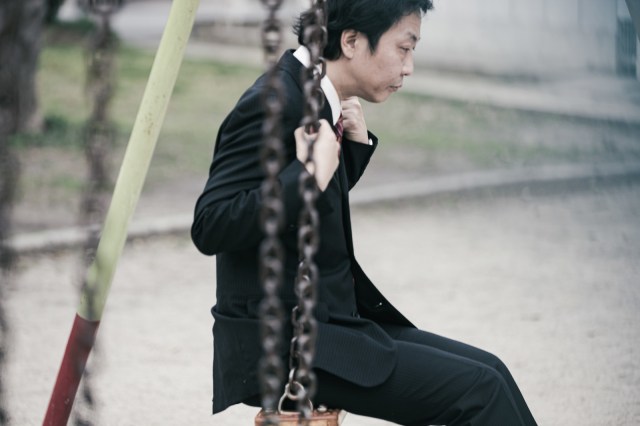
When the Ministry of Education said “pass the baton,” some folks threw it in the trash instead.
When it comes to hiring the best person for the job in a capitalistic society, typically the course of action is to provide better wages than competing companies or great benefits as incentives to attract the most talented and driven individuals in the field. However, when it comes to recruiting more teachers for schools, Japan’s Ministry of Education has chosen a different route instead: a social media campaign.
▼ Translation below
#教師のバトン 🤝プロジェクト開始
— #教師のバトンプロジェクト【文部科学省】 (@teachers_baton) March 25, 2021
全国の学校現場で奮闘する教師の皆さんの取組や後輩へのメッセージなどを #教師のバトン をつけて投稿することを呼びかける、新プロジェクトを開始しました!
投稿を通じてこれから教師を目指す若者にバトンを繋ぐプロジェクトです。
ぜひフォローしてチェック! pic.twitter.com/lbgfRTL8PW
“#passthebaton Project, start! We’re beginning this new project calling for all teachers nationwide to post advice and messages to incoming teachers! Through these posts, current teachers can #passthebaton to young individuals aspiring to become teachers. Definitely follow us and check out what teachers have to say!”
Titled as the “#passthebaton Project,” Japan’s Ministry of Education, Culture, Sports, Science, and Technology (MEXT from here on), has jumpstarted a Twitter hashtag campaign to coax more young folks into the teaching profession. The campaign calls for current teachers to tweet about their experiences on with “#passthebaton,” and thus inspire the next generation of educators in Japan.
At first glance, the concept seems like a great opportunity for teachers on duty to relay their stories to incoming educators, except the campaign has backfired spectacularly. While some folks took the chance to offer encouraging words or nuanced thought-pieces, a majority of posters have taken the moment to share their tough experiences on the job as well as understandable grievances against the current education system.
▼ “Instead of making your work conditions better, let’s try to recruit more people through social media!” is the last thing anyone wants to hear.
From feelings of despair to reflecting over work conditions, current as well as past teachers have shared their thoughts through #passthebaton:
“I really want to support this project, but it’s really hard when I go to work on Saturdays for the mandatory supervision of club activities while local government offices are closed for the day…”
“I just came home from work. I’m on the brink of karoshi. Good night, everyone.” [note: Karoshi is the phenomenon of dying from overwork.]
“I gave birth and took a break during the middle of the academic year. Even though I was so happy, I excessively received calls from my school principal about how I was inconveniencing everyone. They never even congratulated me on my newly born child. To my baby, thank you for being here. Thanks to you mama can rest now.”
“I’ve been a teacher for 38 years. Tomorrow, I’ll be retiring. When I was young, from morning to evening, and even on Saturdays, I worked. I thought my days were fulfilling. But now that I think about it, I feel like I’ve lost too many things in the process.”
Underpaid, under-appreciated, and underserved—educators in Japan juggle a lot between teaching, lesson planning, supervising extracurricular club activities, and at times, ridiculous administrative duties.
In the wake of these messages and inquiries about reform, the #passthebaton Project has posted an official statement in response on Japanese social media website Note. The statement acknowledged several requests teachers made, such as shortening work hours, adjusting wages, as well as increasing the number of faculty and staff in schools, and promised to enact changes to help relieve current teachers of their work-related burdens.
However, since the official statement was published on the Twitter campaign’s Note account, and is not necessarily a formal statement published by MEXT itself, there’s no doubt folks are wondering if any further action will actually occur.
▼ MEXT has decided to phase out the mandatory supervision of club activities, but it supposedly won’t be until 2023 when teachers will see any changes. (Oof!)
At the end of the day, teachers want to support their students, achieve a healthy work-life balance, and be properly compensated for their labor. Identifying what isn’t working in a system is important, and while the path to reform has its challenges, hopefully with many teachers sharing their experiences, more awareness can be built about the current plight of Japan’s educators. Hiring more teachers and staff is crucial, but hopefully MEXT realizes improving work conditions to safeguard the mental health of current teachers is just as important.
Source: Twitter/@teachers_baton via Kinisoku, Note/#passthebaton Project (MEXT)
Top image: Pakutaso
Insert images: Pakutaso (1, 2, 3)
● Want to hear about SoraNews24’s latest articles as soon as they’re published? Follow us on Facebook and Twitter!



 Japanese government promises reduced teacher responsibilities, right to refuse club supervision
Japanese government promises reduced teacher responsibilities, right to refuse club supervision Is Japan overworking its teachers? One exhausted educator says, “YES!”
Is Japan overworking its teachers? One exhausted educator says, “YES!” Japanese teacher simply asks to be treated like a human being
Japanese teacher simply asks to be treated like a human being Japan Considering Bringing Back 6-Day School Week, Teachers Not Overly Enthusiastic
Japan Considering Bringing Back 6-Day School Week, Teachers Not Overly Enthusiastic Middle school teacher moonlighting as host bar host arrested in Nagoya
Middle school teacher moonlighting as host bar host arrested in Nagoya Japan Extreme Budget Travel! A trip from Tokyo to Izumo for just 30,000 yen [Part 1]
Japan Extreme Budget Travel! A trip from Tokyo to Izumo for just 30,000 yen [Part 1] Japanese drugstore sells onigiri at pre-stupid era prices, but how do they compare to 7-Eleven?
Japanese drugstore sells onigiri at pre-stupid era prices, but how do they compare to 7-Eleven? Japan has only one airport named after a samurai, so let’s check out Kochi Ryoma【Photos】
Japan has only one airport named after a samurai, so let’s check out Kochi Ryoma【Photos】 7-Eleven Japan’s sakura sweets season is underway right now!
7-Eleven Japan’s sakura sweets season is underway right now! Shinjuku izakaya’s all-you-can-eat-and-drink plan is one of Tokyo’s best secret cheap eats
Shinjuku izakaya’s all-you-can-eat-and-drink plan is one of Tokyo’s best secret cheap eats Beautiful blue apple jam is taking the Japanese internet’s breath away!
Beautiful blue apple jam is taking the Japanese internet’s breath away! Starbucks Japan releases first-ever Hinamatsuri Girls’ Day Frappuccino
Starbucks Japan releases first-ever Hinamatsuri Girls’ Day Frappuccino Hey, 2020s kids! The ’90s have a sticker picture message waiting for you in Tokyo
Hey, 2020s kids! The ’90s have a sticker picture message waiting for you in Tokyo Tokyo Skytree turns pink for the cherry blossom season
Tokyo Skytree turns pink for the cherry blossom season “Red Wing Burger” is the newest crazy creation from Japan’s oldest hamburger chain【Taste test】
“Red Wing Burger” is the newest crazy creation from Japan’s oldest hamburger chain【Taste test】 The 10 most annoying things foreign tourists do on Japanese trains, according to locals
The 10 most annoying things foreign tourists do on Japanese trains, according to locals Starbucks Japan releases new sakura goods and drinkware for cherry blossom season 2026
Starbucks Japan releases new sakura goods and drinkware for cherry blossom season 2026 Is Sapporio’s Snow Festival awesome enough to be worth visiting even if you hate the snow? [Pics]
Is Sapporio’s Snow Festival awesome enough to be worth visiting even if you hate the snow? [Pics] Japan has trams that say “sorry” while they ride around town…but why?
Japan has trams that say “sorry” while they ride around town…but why? Highest Starbucks in Japan set to open this spring in the Tokyo sky
Highest Starbucks in Japan set to open this spring in the Tokyo sky Japan’s new “Cunte” contact lenses aren’t pronounced like you’re probably thinking they are
Japan’s new “Cunte” contact lenses aren’t pronounced like you’re probably thinking they are Shibuya Station’s Hachiko Gate and Yamanote Line stairway locations change next month
Shibuya Station’s Hachiko Gate and Yamanote Line stairway locations change next month Yakuzen ramen restaurant in Tokyo is very different to a yakuza ramen restaurant
Yakuzen ramen restaurant in Tokyo is very different to a yakuza ramen restaurant Starbucks Japan adds new sakura Frappuccino and cherry blossom drinks to the menu
Starbucks Japan adds new sakura Frappuccino and cherry blossom drinks to the menu Japan’s newest Shinkansen has no seats…or passengers [Video]
Japan’s newest Shinkansen has no seats…or passengers [Video] Foreigners accounting for over 80 percent of off-course skiers needing rescue in Japan’s Hokkaido
Foreigners accounting for over 80 percent of off-course skiers needing rescue in Japan’s Hokkaido Super-salty pizza sends six kids to the hospital in Japan, linguistics blamed
Super-salty pizza sends six kids to the hospital in Japan, linguistics blamed Starbucks Japan unveils new sakura Frappuccino for cherry blossom season 2026
Starbucks Japan unveils new sakura Frappuccino for cherry blossom season 2026 Foreign tourists in Japan will get free Shinkansen tickets to promote regional tourism
Foreign tourists in Japan will get free Shinkansen tickets to promote regional tourism Take a trip to Japan’s Dododo Land, the most irritating place on Earth
Take a trip to Japan’s Dododo Land, the most irritating place on Earth Naruto and Converse team up for new line of shinobi sneakers[Photos]
Naruto and Converse team up for new line of shinobi sneakers[Photos] Is China’s don’t-go-to-Japan warning affecting the lines at a popular Tokyo gyukatsu restaurant?
Is China’s don’t-go-to-Japan warning affecting the lines at a popular Tokyo gyukatsu restaurant? Survey asks foreign tourists what bothered them in Japan, more than half gave same answer
Survey asks foreign tourists what bothered them in Japan, more than half gave same answer Japan’s human washing machines will go on sale to general public, demos to be held in Tokyo
Japan’s human washing machines will go on sale to general public, demos to be held in Tokyo Starbucks Japan releases new drinkware and goods for Valentine’s Day
Starbucks Japan releases new drinkware and goods for Valentine’s Day We deeply regret going into this tunnel on our walk in the mountains of Japan
We deeply regret going into this tunnel on our walk in the mountains of Japan Studio Ghibli releases Kodama forest spirits from Princess Mononoke to light up your home
Studio Ghibli releases Kodama forest spirits from Princess Mononoke to light up your home Major Japanese hotel chain says reservations via overseas booking sites may not be valid
Major Japanese hotel chain says reservations via overseas booking sites may not be valid Put sesame oil in your coffee? Japanese maker says it’s the best way to start your day【Taste test】
Put sesame oil in your coffee? Japanese maker says it’s the best way to start your day【Taste test】 No more using real katana for tourism activities, Japan’s National Police Agency says
No more using real katana for tourism activities, Japan’s National Police Agency says Teacher disciplined for drinking alcohol during class in Japan
Teacher disciplined for drinking alcohol during class in Japan Crushing workload at schools is causing more Japanese teachers to crumble from chronic depression
Crushing workload at schools is causing more Japanese teachers to crumble from chronic depression Educator offers advice for Japanese schoolgirls who get asked out by their teachers
Educator offers advice for Japanese schoolgirls who get asked out by their teachers Osaka’s new remote-learning policy leaves teachers strained and forces students to go to school
Osaka’s new remote-learning policy leaves teachers strained and forces students to go to school Japanese elementary teacher busted for hiding students’ shoes, writing “die” on their belongings
Japanese elementary teacher busted for hiding students’ shoes, writing “die” on their belongings In bid to recruit new talent Japanese government anime-fies its own agencies and ministries
In bid to recruit new talent Japanese government anime-fies its own agencies and ministries Teacher’s heartwarming message helps student pursue art dream
Teacher’s heartwarming message helps student pursue art dream Japan’s Shizuoka bans teachers from personal communication with students on social media
Japan’s Shizuoka bans teachers from personal communication with students on social media High school teacher’s summer vacation homework about appreciating life brings tears to our eyes
High school teacher’s summer vacation homework about appreciating life brings tears to our eyes Teacher says Japanese schools’ mandatory extracurricular activity rules don’t benefit students
Teacher says Japanese schools’ mandatory extracurricular activity rules don’t benefit students The anime girl English teacher textbook character that stole Japan’s heart has gotten a promotion
The anime girl English teacher textbook character that stole Japan’s heart has gotten a promotion This is chalk?!? Yep, and it’s a touching Pokémon goodbye from a Japanese teacher to his students
This is chalk?!? Yep, and it’s a touching Pokémon goodbye from a Japanese teacher to his students Can you handle the heat? Japan’s one and only Curry College now enrolling new students
Can you handle the heat? Japan’s one and only Curry College now enrolling new students